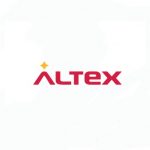What’s new with PSD3 and why does it matter?
Following PSD2, the Payment Services Directive 3 (PSD3) introduces a range of updates intended to strengthen security, encourage innovation, and streamline the efficiency of the European payments sector.
THE TIME HAS COME
The payments industry has undergone substantial changes in recent years, with digital payments across the EU experiencing continuous growth—a trend that was further accelerated by the COVID-19 pandemic. However, these circumstances have also given rise to more sophisticated fraud, compromising consumer safety and trust.
Digital technologies and the open banking concept facilitate the secure sharing of financial data between banks and non-banking financial companies. PSD3 prepares the EU’s financial sector for the digital future, managing the challenges and benefits that come with it.
For now, PSD3 is still in the proposal stage, and it’s unlikely to be adopted before mid-2025. Solanteq is monitoring the situation closely and is prepared to support your business, making sure you’re ready for the changes ahead.
PSD3 enhances open banking and consumer protection by:
- Reducing fraud through sharing fraud-related data between PSPs.
- Strengthening customer authentication rules.
- Extending refund rights for fraud victims.
- Implementing IBAN/name matching verification for all credit transfers.
- Improving transparency on account statements and ATM charges.
- Equalizing access to EU payment systems for both banks and PSPs.
- Enhancing cash availability in stores and ATMs without a purchase.
- Clarifying currency conversion charges and transfer times for non-EU payments.
PREPARATION IS A MUST
The three pillars of keeping up with payments evolution and delivering more sophisticated customer experiences are speed, efficiency, and security.
PSD3 was made in tandem with existing policy provisions in the European area, which covers different influential zones in the financial sector, including Settlement Finality Directive (SFD), Crypto-Assets Regulation (MiCA), Digital Operational Resilience Act (DORA), Anti-Money Laundering (AML) Directive, and Single Euro Payments Area (SEPA) Regulation.
Starting in Q1 2024, new SEPA Instant Payments legislation took effect, which means all payment service providers offering SEPA Credit Transfers must now participate in the Instant scheme. This fundamentally changes the European payments landscape, with 10-second transfers becoming the norm.
This change creates new opportunities for all players in the payments industry and boosts competition by allowing non-banks to join SEPA payment schemes directly. Previously, Fintechs could only participate through Correspondent Banking relationships.
Payment industry players need to stay ahead of changes in SEPA and PSD3 by preparing for immediate, intermediate, and long-term impacts. With Solanteq, you’ll never be caught off guard by new regulations. We provide fintechs, PSPs, and banks with adaptable software to lead in digital transformation.


